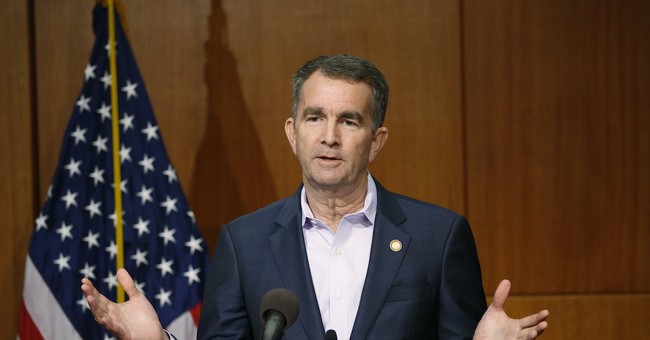BY TYLER O’NEIL
Gov. Ralph Northam (D-Va.) had long been notorious for instituting some of the harshest restrictions on churches ostensibly to slow the spread of the Chinese coronavirus pandemic. Yet last week, with little fanfare, Northam agreed to settle a religious freedom lawsuit and dropped the more onerous restrictions for religious services that have 250 or fewer attendees. Restrictions regarding masks and social distancing still apply, but extra rules regarding signage, seating, food and beverage containers, and more have quietly disappeared.
The Founding Freedoms Law Center notified Virginia churches about the loosened restrictions in an email on Thursday.
“As a result of a recent lawsuit filed by four Madison County pastors against Gov. Northam’s restrictive mandates on churches, the Governor’s attorneys agreed to the following: Religious services of 250 people or fewer are no longer subject to any mandatory restrictions in the Executive Orders other than EO-63 (relating to facemasks),” the center explained.
While EO-63 remains in effect, the more restrictive EO-67, which includes onerous restrictions on religious services during Phase 3 on page 10, will no longer be enforced for gatherings of up to 250. The Founding Freedoms Law Center listed the restrictions EO-67 previously forced on churches:
- Every person must be six feet apart when seated, and six feet social distance from others at all times.
- Mark seating and common areas where attendees may congregate in six-foot increments.
- Any items used to distribute food or beverages must be disposable, used only once and discarded.
- Routine cleaning and disinfection of frequently-contacted surfaces prior to and following any service.
- Post signage at the building entrance stating that no one with a fever or any symptoms of COVID-19 is allowed to participate in the service.
- Post signage about physical distancing, gatherings, options for high-risk individuals, and staying home if sick.
- If for any reason religious services can’t comply with all these requirements, “they must not be held in-person.”
While these rules “might seem reasonable in some religious contexts,” the law center argued that they “are unworkable, if not absurd, in others. (e.g. weddings, funerals, bar mitzvahs, baptisms, Mass/communion, small churches vs. large churches, youth group and children’s events, Vacation Bible School, etc.).”
Perhaps more importantly, the center argued that Northam does not have “any authority in the first place to direct the manner in which religious services are conducted inside or outside the church — and with criminal penalties for non-compliance!”
Northam settled the lawsuit last month, on September 22, according to the Prince George Journal. The governor submitted an order to a circuit court judge, directing that church services that have less than 250 attendees are exempt from EO-67 restrictions.
“Under the order, religious services of 250 or fewer people are no longer subject to mandatory restrictions except for face coverings and a requirement of six feet of distance at religious services excluding family members,” the Journal reported.
Four Madison County church members sued Northam, claiming the order discriminated against religious services by putting more limitations on them than on secular gatherings. The lawsuit claimed that Northam’s order violated the Virginia Constitution, Virginia’s Bill of Rights, the Virginia Statute for Religious Freedom, and other laws.
“We as a church can come together and decide if we want to restrict ourselves, but the government cannot step in and do it for us,” Charlie Sheads, a mechanic, church musician, and a plaintiff in the case, told the Journal.
Northam’s order had long closed churches, limiting attendance to 50 percent capacity and no more than 10 people.
In May, when Virginia prohibited religious gatherings of more than 10 people, about 200 pastors sent a letter to the governor, warning that if he closed churches for much longer, they would have to obey God rather than the government.
“Because corporate worship is central to Christian life, it is extraordinary for churches to forego meeting for even a single Sunday,” the pastors wrote. “Thus, with each passing week that corporate worship is banned, as churches stand ready to implement reasonable public-health precautions, the government pushes Christians closer to the point where they must choose to sin against God and conscience or violate the law.”
“Ultimately, as Christians, we are compelled to obey God’s law (Acts 5:29),” they added. “Corporate worship is commanded by Scripture and has been a foundational element of Christian life for nearly 2,000 years. Alternatives such as live-streamed services and ‘drive-through’ worship are not adequate substitutes to the Body of Christ (1 Corinthians 12:12-27) united together in corporate worship.”
My own church (in Falls Church, Va.) has opened with limited capacity, following many self-imposed restrictions. We have two separate services, one indoors with masks and distancing but with no singing, and one outdoors with singing. We gladly follow guidelines to prevent the spread of the virus, but it is not the government’s place to tell churches how they are to conduct services.





